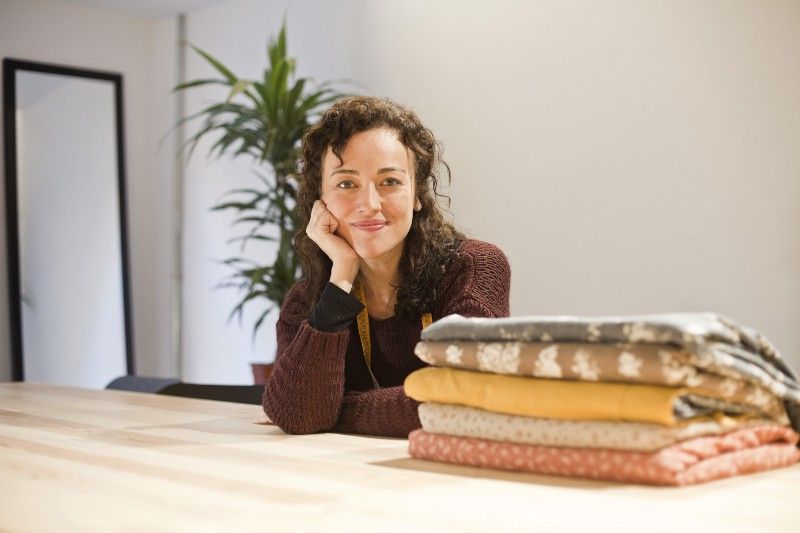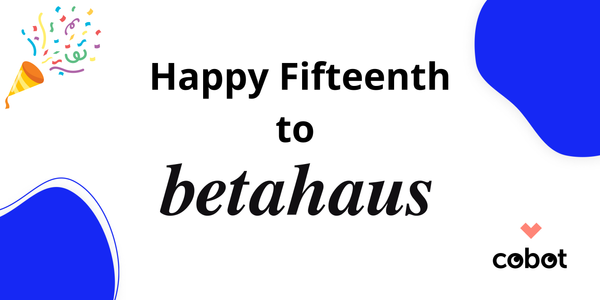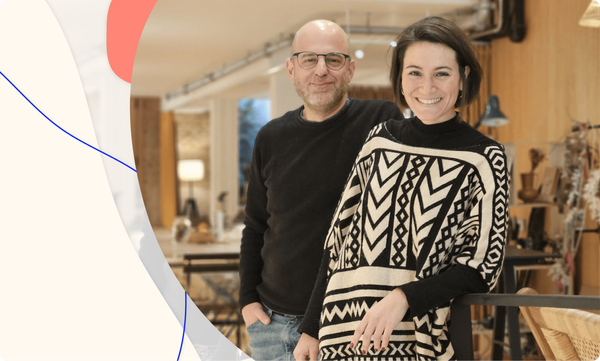Puedes leer este artículo en español aquí.
A little over two years ago Meritxell Farràs opened the doors of La Lola Coworking for Creators in Barcelona’s Gràcia neighborhood — a space dedicated to people who work with their hands and need so much more than just tables and computers. In La Lola you can find jewelry professionals, illustrators, fashion but also a theater company or a branding and communication studio.
The project arose from Meritxell’s personal needs: “I have a fashion accessories brand and I worked at home. I felt very alone in the project and I needed a support community that would help me in everything related to the creation of the product itself.” At that time, about three years ago, CREC coworking, one of the leaders of the sector at that time in the city of Barcelona, started a project named CRIM that aimed to support these creators. The CREC project ultimately ended but Meritxell was determined to open a space that could respond to the needs of her and the other people in that community of creators.
After almost a year, Meritxell opened the doors of La Lola. Beginning with a pre-existing community had benefits, but also drawbacks: “On the one hand, we reached profitability earlier, but on the other, some of the people who started the project did not share the values or ideas of the project.” After a while, many who were not aligned with Meritxell’s vision of La Lola left while other people aligned with the idea became sources of inspiration for Meritxell. “I really don’t manage alone: Russ, Gustavo and Patri [La Lola coworkers] help me in the management. The final decision is always mine but many times their ideas are better than mine and we do what they propose instead of what I had thought.”
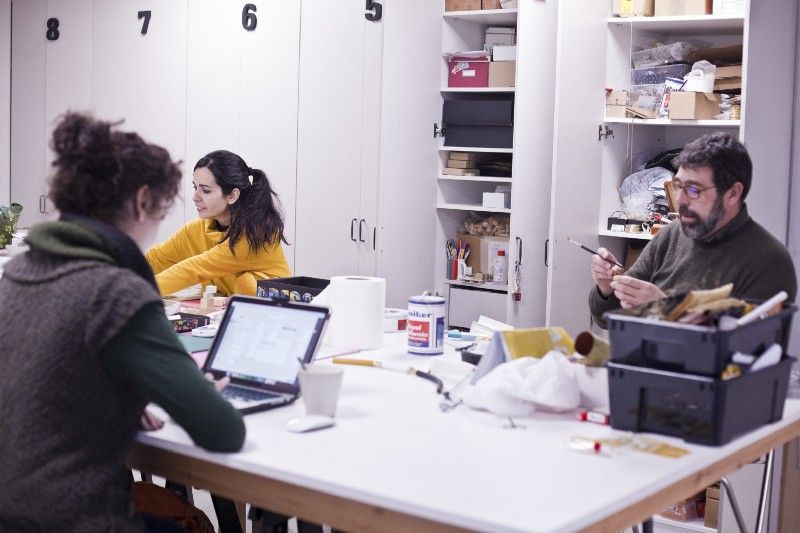
A coworking space with these unique characteristics must respond to very different needs from those of a conventional space. The main difference is the need for much larger workspaces; impacting the profitability of the space. Meritxell’s way of solving this conundrum is simple: “each person has a workspace of conventional dimensions. There they do their ‘computer’ work. Special workspaces such as cutting tables [4 x1.5 meter tables where you can spread the fabric to mark patterns and then cut the pieces] are available for shared use.” They treat these spaces like traditional coworking spaces treat meeting rooms — users can reserve them and the community is coordinated so that everyone can do their work without interfering with that of others.
When you are part of this community, it is impossible not to know what the person sitting at the opposite end of the office does, because when you move through the shared spaces you will see what they are working on and can offer tips and experience. Meritxell tells us that they continue to find synergies between community members.
“We all have a previous life” explains Meritxell, “all of us are converted craftsmen and that is very useful to us, because when someone has an accounting question they can discuss it with Russ or when someone has a marketing question they can ask me.”
During the interview, Gustavo and I went out to the patio for a moment (don’t worry, we always kept a safe distance) and I took the opportunity to ask him how he felt being part of the space: “I don’t want La Lola to ever close, I don’t want to work from home or go to any other space to work. This is my home.”
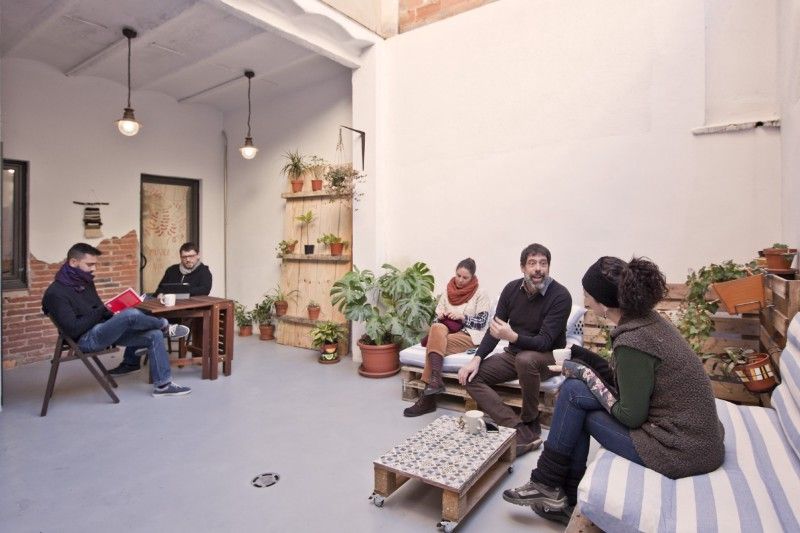
How do you get a community to feel this way? Meritxell tells us it is because every message she sends to the group ends with the phrase “hello family” and when you look into her eyes, you can tell that she really means it.
COVID-19
During the confinement La Lola was closed for two months. People took their computer home and the material to continue producing at home.
“Not only did 100% of the community return, but since the confinement was lifted, two new people have joined the community. Now, however, we do not accept new members because we think it is the best way to maintain the safety of the people who are part of the community.”
“During the confinement we were always connected. We called each other on birthdays and made vermouths or virtual wines and I called each person individually to find out how they were doing.”
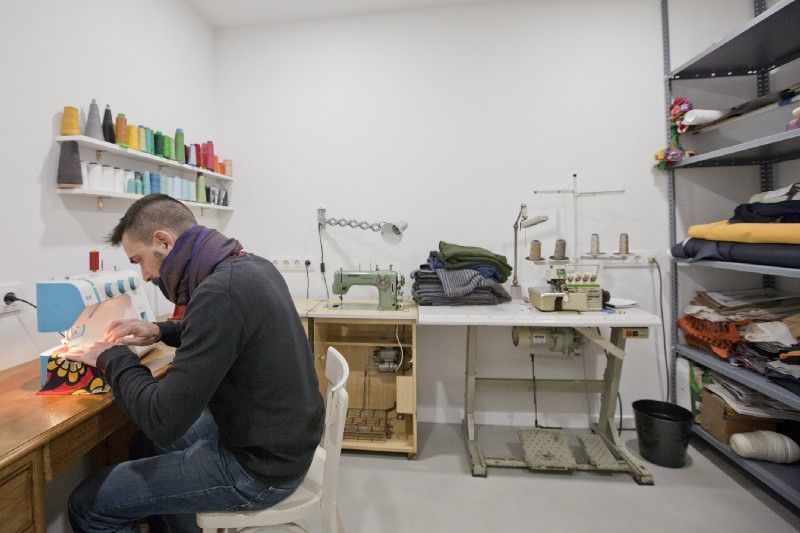
For Meritxell, COVID-19 has been a challenge — especially regarding health. They have implemented necessary measures to maintain a safe space but luckily they have avoided a financial challenge. The space is their own and the community was treated with respect and communication was fluid.
However, they are keeping their guard up because the demand for many projects has decreased due to uncertainty and understandable prudence.
What we also know is that during the past months, Meritxell was able to devote time to her fashion accessories brand which, she confesses, had a bit of a standstill since opening the space: “I underestimated the amount of time and effort that opening a coworking space would take. During these two years I put aside my brand to focus on coworking because I saw that otherwise things would not work out. Now I can start dedicating time with the peace of mind that things are under control and I will be able to combine both activities, like I thought would be the case when I started.”
We are glad that this is the case and that La Lola continues to bring their unique and vibrant vision of coworking to Barcelona.
If you aren’t already using Cobot as your coworking management software, give it a go! You’ll find that our features can help you run your coworking space more effectively and grow your community. Just sign up for a free trial or a live demo session. And if you have questions, our support team is all ears!
Happy Coworking!
#coworking #coworking space #cobot latam #cobot en español
